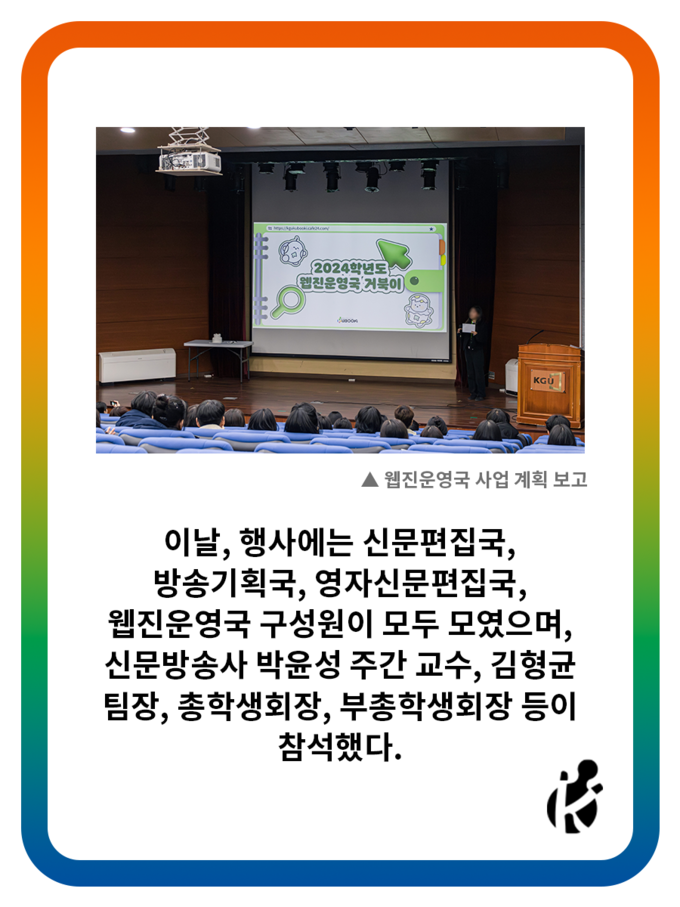In South Korea, pet shops are still prevalent. You can see pet shops even in front of Kyonggi University. These shops acquire puppies from puppy mills that continuously produce popular dogs. Consequently, there is a growing voice advocating for the strengthening of animal welfare laws. Additionally, a movement to eradicate pet shop usage is spreading, accompanied by hashtags like, “Adopt, don’t shop!” Alongside these trends, a new type of pet shop has emerged, cleverly disguising itself as an animal shelter. How can we distinguish these from actual shelters?
In September of last year, a pet mill was discovered in Hwaseong-si, Gyeonggi-do. It had a reputation as the largest Maltese breeding ground in Korea, and the records found in the pet mill were shocking. A total of 1,400 dogs were raised here to continuously breed by checking their menstrual cycles. Several Caesarean procedures were also found in small-sized dogs that were not considered mother dogs and were forcibly induced to become pregnant. If you visit a pet shop, you can find young and small dogs lying down in a small space. This is because most people want dogs that are young and small. To make and sell such dogs, they perform a Caesarean instead of natural birth. By opening the young dog’s belly and sewing it again to get it pregnant and then cutting it apart, the dog continues to produce young and pretty dogs. Pet shops promote their puppies as coming from a welfare-friendly environment, but most have come from auctions. Therefore, promoting pet shop consumption through platforms like social media should be strictly avoided. By concealing the cruel reality of puppy mills and showcasing only the cute side of animals, an endless cycle of exploitation occurs, filling the people’s pockets which use animals for capital. This is why people created the slogan “Adopt, don’t shop!” Going to a pet shop is not the only way to find a cute dog. Many organizations that respect animals are letting people adopt them through ethical procedures.
Since pet shops and pet mills have been blamed for a long time, people want to adopt abandoned animals. Taking advantage of this phenomenon, a “new pet shop” appeals to people’s ethics. These shops operate under the guise of adopting out abandoned animals. However, they function similarly to pet shops in reality. Visitors to these establishments are often people who have to give up life with their pets. This shop promises to care for these abandoned animals for life. What becomes of these abandoned animals? Will they find new homes and live happily ever after? Absolutely not. They promote the adoption of abandoned animals and recommend pet shop animals to those who visit the store, saying that abandoned dogs are likely to cause problems. In addition, when visitors say they want to adopt abandoned animals, they force them to buy pet shop animals, saying they have to pay a lot of money. Therefore, not allowing the use of the name of abandoned dog shelters has been proposed by the National Assembly several times, but none have been passed.
How about overseas? Can pets be easily purchased as in South Korea? No. Overseas, there is a trend of regulating pet shops as illegal. The culture of easily acquiring and discarding pets in South Korea is because of the pet shops and the pet mills. If people buy animals easily, they get rid of animals easily, too. However, in Germany, private sales of animals are prohibited, so there are no puppy mills. Instead, there are strict adoption procedures, primarily through animal shelters like Tierheim. Adoption via professional breeders is also possible but comes with a high adoption fee. Germany’s stringent adoption process involves counseling, environmental assessments, family composition surveys, and sometimes even qualification tests, even after adoption confirmation. Moreover, the German government has legislated that pet owners must walk their dogs for at least one hour a day. While there are no penalties for non-compliance, this legislation means respect for animal welfare. In contrast with South Korea, Germany shows a different environment for animals.
Behind the cute and small animals lies the dark shadow of cruel pet mills. While the number of pet-owning households continues to increase, animal rights in South Korea remain stagnant. Where did the animals that are loved on social media come from? Before adoring these animals, it’s essential to consider the existence of pet mills. Animal rights in South Korea must undergo extensive societal debate in order to change. Animals should never be used for human capital. How South Korea resolves these issues warrants attention.
78th Reporter • Lee Hyeon Seo • zzhs00@naver.com
 Shall We Dance?
There are moments that you want to get away from. Sometimes life is overwhelming and you might think that you’re too fragile. Due to personal reasons, I felt like that while working on this issue. Although I felt helpless, somehow I got over it. You control your own life. Your society is where you belong. You should take responsibility for your life and society and take good care of yourself. What I tried not to forget is this quote by Viv...
Shall We Dance?
There are moments that you want to get away from. Sometimes life is overwhelming and you might think that you’re too fragile. Due to personal reasons, I felt like that while working on this issue. Although I felt helpless, somehow I got over it. You control your own life. Your society is where you belong. You should take responsibility for your life and society and take good care of yourself. What I tried not to forget is this quote by Viv...

 [심층보도] 캠퍼스타운, 본교 발전의 초석 될까
[심층보도] 캠퍼스타운, 본교 발전의 초석 될까
 [와이파이] 성인 엑스포, 단순 행사인가 유사 성매매인가
[와이파이] 성인 엑스포, 단순 행사인가 유사 성매매인가
 [방구석 시사회] ‘괴물 형사’ 마석도, 네 번째 진실의 방으로
[방구석 시사회] ‘괴물 형사’ 마석도, 네 번째 진실의 방으로
 [진리터] 우후죽순 발생하는 이슈, 관심으로 찾을 수 있는 권리
[진리터] 우후죽순 발생하는 이슈, 관심으로 찾을 수 있는 권리

 목록
목록


















